Artificial intelligence has revolutionized marketing, transforming how brands connect with customers and optimize their strategies.
This technology enables us to work more efficiently and reimagine the entire landscape of customer engagement.
Articles similar to this one can be found at: https://aiismsforbeginners.com/

The AI Marketing Revolution
AI marketing harnesses machine learning algorithms and data analysis to understand and forecast customer behavior. It creates hyper-personalized experiences, automates repetitive tasks, and makes decisions at a speed and scale humans can’t match.
Theoretical Foundations
Several key technologies form the backbone of AI marketing:
Machine Learning
Machine learning powers most AI marketing tools. It allows systems to learn from data without explicit programming, continuously improving their performance over time.
A quick study about AI/ML can be found here: https://amzn.to/4ahKxEn
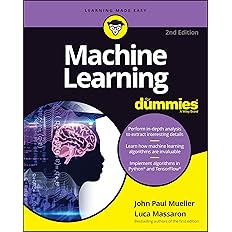
Note: As an Amazon Associate, I may earn a commission from qualifying purchases.
Natural Language Processing (NLP)
NLP enables machines to understand and generate human language. This technology is crucial for chatbots, content creation, and analyzing customer feedback.
Computer Vision
Computer vision technology changes visual search and augmented reality marketing. It allows machines to interpret and analyze images and video content.
Predictive Analytics
By analyzing historical data, AI can forecast future trends and behaviors. This helps marketers anticipate customer needs and optimize their strategies accordingly.
Practical Applications
These technologies translate into powerful marketing tools:
Personalization Engines
AI-driven personalization tailors content, product recommendations, and experiences to person users. Netflix’s recommendation system is a prime example, suggesting shows based on viewing history and preferences.
Chatbots and Virtual Assistants
AI-powered chatbots handle customer inquiries 24/7, improving response times and freeing up human agents for more complex issues. They’re becoming increasingly sophisticated, capable of understanding context and providing personalized assistance.
Programmatic Advertising
AI algorithms purchase ad space in real-time, ensuring ads reach the right audience at the optimal moment. This maximizes ad spend efficiency and improves targeting accuracy.
Content Creation
AI can generate various types of content at scale, from product descriptions to social media posts. While human oversight is still crucial, AI significantly speeds up the content creation process.
Predictive Lead Scoring
By analyzing thousands of data points, AI identifies which leads are most likely to convert. This allows sales teams to prioritize their efforts and improve conversion rates.
Overcoming Challenges in AI Marketing
Implementing AI in marketing comes with its share of hurdles.
Here is a beginner’s reference: https://amzn.to/3E9nuPR
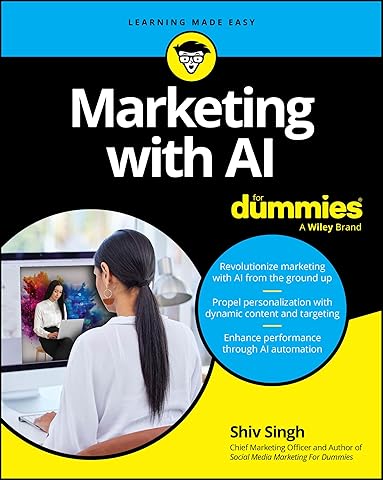
Note: As an Amazon Associate, I may earn a commission from qualifying purchases.
Data Privacy Concerns
As AI relies heavily on user data, ensuring compliance with regulations like GDPR is crucial. Marketers must be transparent about data collection and usage practices.
Need for Large Datasets
AI systems need substantial amounts of high-quality data to function effectively. Smaller businesses may struggle to gather sufficient data for accurate predictions.
Integration with Existing Systems
Incorporating AI into established marketing tech stacks can be complex. It often needs significant time and resources to confirm seamless integration.
Skill Gap
Many marketing teams lack the technical expertise to fully leverage AI tools. Ongoing training and potentially hiring specialized talent become necessary.
Implementing AI in Your Marketing Strategy: A Step-by-Step Guide
- Identify Your Goals
Clearly define what you want to achieve with AI. Are you aiming for increased conversions, better customer service, or more effective ad spend?
Having specific goals will guide your AI implementation.
- Audit Your Data
AI is only as good as the data it’s fed. Ensure you have clean, comprehensive data to work with. This may involve consolidating data from various sources and cleaning up inconsistencies.
- Choose the Right Tools
Research and choose AI marketing tools that align with your goals and budget. Consider factors like ease of use, integration capabilities, and scalability.
- Start Small
Begin with a pilot project to test the waters. You might start by implementing a chatbot on your website or using AI for email subject line optimization.
- Train Your Team
Ensure your marketing team understands how to work with AI tools and interpret their outputs. This may involve formal training sessions or partnering with AI experts.
- Monitor and Adjust
AI systems need ongoing monitoring and tweaking. Regularly review performance metrics and make adjustments as needed to optimize results.
- Scale Gradually
As you see success, gradually expand your use of AI across more marketing functions. This allows for controlled growth and minimizes risks.
Here are several reference books to get you headed in the ‘successful’ direction:
1st link: https://amzn.to/3BY5V4U
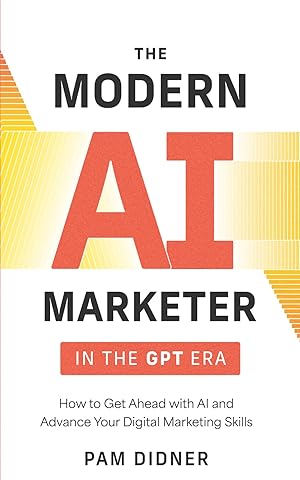
2nd link: https://amzn.to/3Wl5yIk
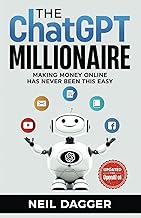
3rd link: https://amzn.to/4hjLLB4
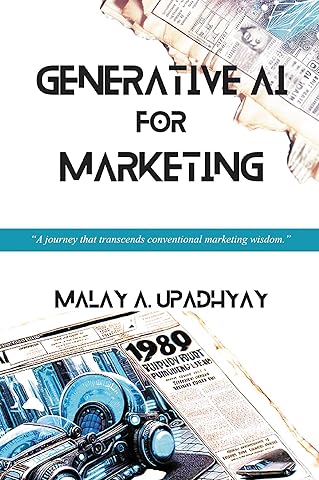
4th link: https://amzn.to/3PCfXLZ
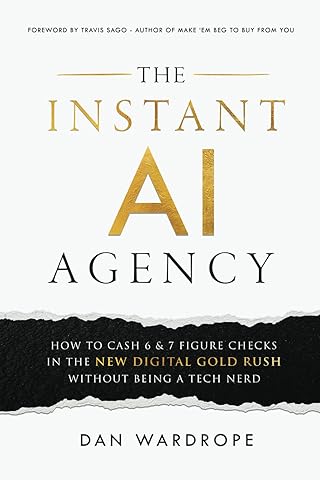
Note: As an Amazon Associate, I may earn a commission from qualifying purchases.
Case Study: AI-Powered Personalization at Spotify
Spotify’s Discover Weekly playlist exemplifies AI marketing done right. By analyzing listening habits and comparing them to similar users, Spotify creates personalized playlists that keep users engaged week after week.
The system considers factors like:
- Listening history
- Skipped tracks
- Liked songs
- Time of day and context of listening
This deep level of personalization has resulted in higher user retention and a reputation for understanding person tastes. It’s a prime example of how AI can enhance the user experience while driving business goals.
Common Pitfalls in AI Marketing (and How to Avoid Them)
Over-reliance on AI
While AI is powerful, it shouldn’t replace human creativity and strategy. Maintain a balance between AI-driven insights and human intuition.
Use AI to tell decisions, not make them entirely.
Ignoring Data Privacy
With regulations like GDPR in place, proper data handling is crucial. Be transparent about how you’re using customer data and confirm you have proper consent mechanisms in place.
Neglecting the Customer Experience
If you’re targeting efficiency, don’t lose sight of creating meaningful interactions with your customers. AI should enhance, not replace, the human touch in your marketing efforts.
Failing to Integrate
AI shouldn’t exist in isolation. Ensure it’s well-integrated with your existing marketing tech stack for seamless operations and data flow.
Overlooking Bias
AI can perpetuate biases present in training data. Regularly audit your AI systems for fairness and inclusivity.
This may involve diverse data sets and ongoing monitoring for unintended biases in outputs.
Adapting AI Marketing Techniques Across Industries
While the core principles of AI marketing remain consistent, their application varies across different sectors:
E-commerce
In e-commerce, AI excels at personalized product recommendations and dynamic pricing. By analyzing browsing history, purchase patterns, and even external factors like weather, AI can suggest products a customer is likely to buy and adjust prices in real-time to maximize sales.
B2B
For B2B companies, AI shines in lead scoring and account-based marketing. It can analyze large amounts of data to identify the most promising leads and tailor marketing efforts to specific accounts.
Healthcare
In healthcare marketing, AI can personalize health recommendations while maintaining strict privacy standards. It can analyze anonymized patient data to target specific demographics with relevant health information or services.
Finance
Financial institutions use AI for fraud detection and personalized financial advice. AI algorithms can spot unusual patterns in transactions and offer tailored investment or savings recommendations based on person financial situations.
Travel
The travel industry leverages AI to create personalized itineraries and destination recommendations. By analyzing past travel history, preferences, and even social media activity, AI can suggest tailored travel experiences.
From Basics to Mastery: The AI Marketing Learning Curve
Mastering AI marketing is an ongoing process. It starts with understanding the basics of data analysis and machine learning.
As you progress, you’ll explore more advanced techniques like predictive modeling and natural language generation.
The key is to stay curious and keep learning. The field of AI is evolving rapidly, and what’s cutting-edge today may be standard practice tomorrow.
Attend conferences, take online courses, and experiment with new tools to stay ahead of the curve.
Speaking of Mastery, here is a great learning source: https://amzn.to/4gWrylc

Note: As an Amazon Associate, I may earn a commission from qualifying purchases.
Beginner Level
At this stage, focus on:
- Understanding basic AI and machine learning concepts
- Familiarizing yourself with popular AI marketing tools
- Learning to interpret AI-generated insights
Intermediate Level
As you progress, dive into:
- Implementing AI for specific marketing functions (e.g., email marketing, social media)
- Developing basic predictive models
- Integrating AI tools with your existing marketing stack
Advanced Level
At the advanced level, you’ll be:
- Creating custom AI models for your specific business needs
- Implementing advanced techniques like natural language generation
- Leading AI strategy for your organization
Exercises to Sharpen Your AI Marketing Skills
Data Analysis Challenge
Take a dataset from your own marketing efforts and use a tool like Google Analytics to identify patterns. Look for insights that could tell your strategy.
For example, you might learn that certain types of content perform better at specific times of day.
Chatbot Creation
Use a platform like Dialogflow to create a simple chatbot for your website. Start with basic FAQs and gradually increase it’s complexity.
Pay attention to user interactions and refine the bot’s responses over time.
A/B Testing with AI
Set up an A/B test for email subject lines using an AI tool. Compare the results to your traditional methods.
Look for patterns in what types of subject lines perform best and use these insights to improve your email marketing strategy.
Content Generation Experiment
Use an AI writing tool to generate product descriptions or social media posts. Edit the output and compare it to human-written content.
This exercise will help you understand the strengths and limitations of AI in content creation.
Predictive Analytics Project
Use historical data to create a simple predictive model for customer churn. Analyze factors like purchase frequency, customer support interactions, and engagement with marketing materials.
Test the accuracy of your predictions and refine your model over time.
The Future of AI in Marketing
As AI continues to evolve, we can expect even more sophisticated applications in marketing:
Hyper-Personalization
AI will enable true one-to-one marketing at scale, tailoring every interaction to person preferences and behaviors.
Predictive Customer Service
AI will anticipate customer issues before they arise, allowing for proactive problem-solving.
Advanced Content Creation
AI will generate increasingly sophisticated content, potentially even creating personalized video content in real-time.
Augmented Reality Marketing
AI will power more immersive AR experiences, allowing customers to visualize products in their own environment before purchasing.
Ethical AI
As concerns about data privacy and algorithmic bias grow, we’ll see a greater focus on developing ethical AI practices in marketing.
Future AI considerations to be aware of: https://amzn.to/3C12hHr
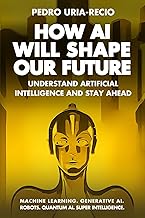
Note: As an Amazon Associate, I may earn a commission from qualifying purchases.
Ethical Considerations in AI Marketing
As we embrace AI in marketing, it’s crucial to consider the ethical implications:
Transparency
Be clear about when and how you’re using AI in customer interactions. Customers should know if they’re interacting with an AI system.
Data Privacy
Respect user privacy and adhere to data protection regulations. Only collect and use data that’s necessary and with explicit consent.
Fairness
Regularly audit your AI systems for bias. Ensure your AI isn’t discriminating against certain groups or perpetuating harmful stereotypes.
Human Oversight
While AI can automate many tasks, maintain human oversight to catch errors and handle complex situations that need empathy or nuanced understanding.
Measuring the ROI of AI in Marketing
Determining the return on investment for AI marketing initiatives is crucial for justifying the often significant upfront costs. Here are key metrics to consider:
Conversion Rate
Track how AI-powered personalization and targeting affect your conversion rates across various channels.
Customer Lifetime Value
Measure how AI-driven retention strategies impact the long-term value of your customers.
Cost per Acquisition
Analyze how AI improves your ad spend and reduces the cost of acquiring new customers.
Customer Satisfaction
Monitor customer satisfaction scores to see how AI-powered services like chatbots affect the overall customer experience.
Efficiency Metrics
Track time saved on tasks that have been automated by AI, allowing your team to focus on more strategic initiatives.
Building an AI-Ready Marketing Team
To fully leverage AI in your marketing efforts, you’ll need a team with the right mix of skills:
Data Scientists
These professionals can develop custom AI models and interpret complex data sets.
AI Specialists
Experts who understand the latest AI technologies and how to apply them to marketing challenges.
Marketing Technologists
Team members who can bridge the gap between marketing strategy and technical implementation.
Creative Professionals
While AI can assist with content creation, human creativity is still essential for developing innovative campaigns and messaging.
Ethical AI Experts
As AI becomes more prevalent, having team members who understand the ethical implications of AI use will be crucial.
Frequently Asked Questions
What is AI marketing?
AI marketing uses artificial intelligence technologies to automate decisions based on data collection, analysis, and extra observations of audience or economic trends that may impact marketing efforts.
How does AI improve personalization in marketing?
AI analyzes large amounts of customer data to create highly personalized experiences, from product recommendations to tailored email content and targeted ads.
Can small businesses benefit from AI marketing?
Yes, small businesses can benefit from AI marketing through affordable tools that offer features like automated social media posting, chatbots, and basic predictive analytics.
What are some popular AI marketing tools?
Popular AI marketing tools include HubSpot (for inbound marketing), Salesforce Einstein (for CRM), and Persado (for AI-driven content creation). There now are many more as the industry continues to grow rapidly.
How does AI impact email marketing?
AI can optimize email send times, personalize subject lines and content, and segment audiences more effectively, leading to higher open and click-through rates.
What role does AI play in social media marketing?
AI helps in social media marketing by analyzing trends, scheduling posts for optimal engagement, and even generating content ideas based on what’s performing well.
How can AI improve customer service in marketing?
AI-powered chatbots can handle basic customer inquiries 24/7, freeing up human agents for more complex issues and improving response times.
What is predictive analytics in marketing?
Predictive analytics uses AI to analyze historical data and forecast future outcomes, such as which customers are likely to churn or which products a customer might be interested in next.
How does AI help with content marketing?
AI can assist in content creation, optimize content for SEO, and analyze which types of content perform best with different audience segments.
What are the potential risks of using AI in marketing?
Potential risks include data privacy concerns, algorithmic bias, over-reliance on automation, and the need for significant upfront investment in technology and training.
Key Takeaways
- AI marketing leverages machine learning to personalize and automate marketing efforts, improving efficiency and customer engagement.
- Implementing AI needs clear goals, clean data, and a step-by-step approach, starting with small pilot projects.
- While powerful, AI should complement human creativity and strategy, not replace it entirely.
- Different industries can adapt AI techniques to their specific needs, from e-commerce personalization to B2B lead scoring.
- Ethical considerations, including transparency and fairness, are crucial when implementing AI in marketing.
- Building an AI-ready marketing team needs a mix of technical and creative skills.
- Measuring the ROI of AI initiatives is essential for justifying investment and optimizing strategies.
A great cost-saving tool you need can be found at: https://galaxy.ai/?ref=gary
This post contains links. If you click on these links and make a purchase, I may earn a commission at no additional cost to you. Rest assured, I only recommend products or services I believe will add value to my readers. As an Amazon Associate, I may earn a commission from qualifying purchases.
Articles similar to this one can be found at: https://aiismsforbeginners.com/
